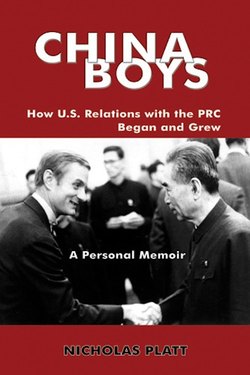Читать книгу CHINA BOYS: How U.S. Relations With the PRC Began and Grew. A Personal Memoir - Nicholas MD Platt - Страница 24
На сайте Литреса книга снята с продажи.
The Politics of Night Soil
ОглавлениеCulture was an important part of my portfolio. One of my reports covered the Festival of Peking Opera on Revolutionary Themes, which took place in Peking during the summer of 1964. In June, Madame Mao, under wraps for decades, made her first public speech at this event. “Do you eat?” Madame Mao asked her audience of theater professionals and officials from the Ministry of Culture, as reported in the People’s Daily. “That food came from the farmers! So serve the farmers in your plays and operas.”
One work that drew rave notices in the People’s Daily was a one act opera called The Bucket. Here’s how it went:
The curtain opens. A bucket sits center stage, nothing else. It contains night soil, the contents of the family chamber pots and privy, a valuable commodity in rural China.
Enter stage left the virtuous wife (cymbals, squealing strings, and woodwinds), who sings a fervent aria describing her plans to spread the contents of the bucket on the communal fields to increase production for the benefit of the revolution. Cheers.
Enter stage right the husband (Chinese Communist theater conventions, like our TV sitcoms, usually portray the male in the buffoon or bourgeois villain role). His aria describes the advantages of dumping the bucket on the family private plot to improve vegetable yields and their personal earnings. Boos, hisses.
The husband and wife sing a competitive duet, each grasping their side of the bucket. A tug of war ensues (drums, cymbals, gongs, flutes).
Enter center stage rear the mother-in-law, who casts the deciding vote in favor of fertilizing the communal fields. Curtain, applause.
Though the allocation of human fertilizer was a real issue in the Chinese countryside, I found this grungy debate in classical opera form ridiculous, even hilarious, a view shared by Seymour Topping, the New York Times Hong Kong bureau chief, who wrote it up after I briefed him. So did a number of Chinese officials, we later learned. This turned out to be a big mistake, probably the biggest of their lives. For Madame Mao’s revolutionary operas, plays, films, and ballets––works like The Red Detachment of Women, White-Haired Girl, and Red Lantern––would be the only sanctioned entertainment for years to come. She had convinced Mao that this was a vital way to purify the thoughts of the Chinese people.
The festival turned out to be a harbinger of big trouble, of which we had no inkling then.
